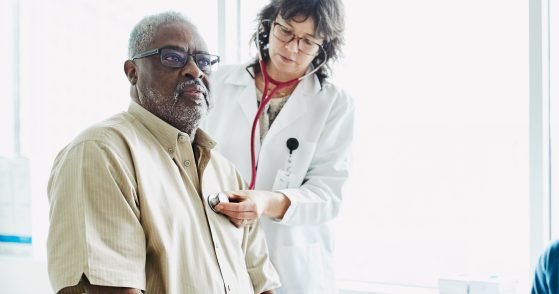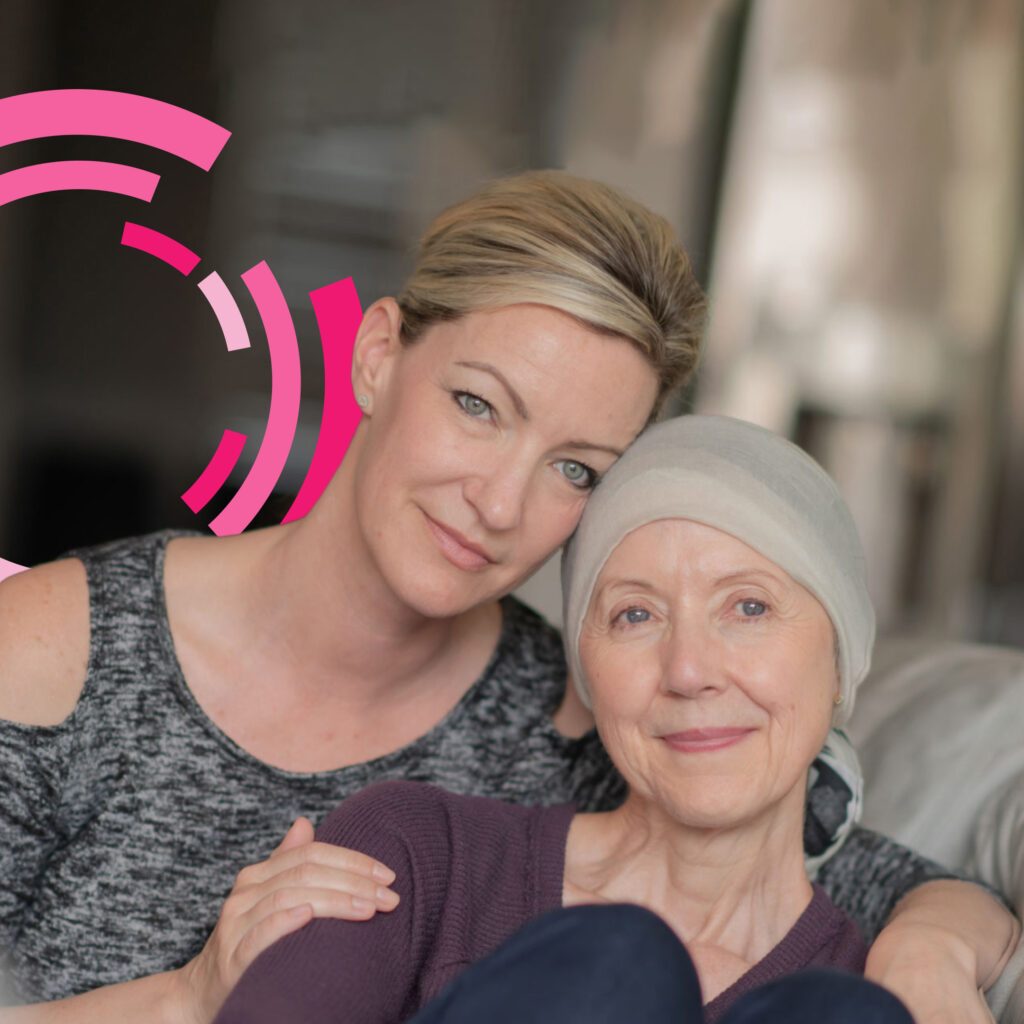
We’re committed to our mission of finding new treatments that may help improve the lives of people with cancer. Our clinical trials for breast cancer study investigational medications alone, or in combination with other study medications, or standard of careStandard of care (Standard Treatment)Accepted or approved treatment for a condition (disease or illness); treatment usually given to people for a condition (disease or illness) at the time; the treatment for a condition that is accepted and widely used by health care professionals at the time therapy. We perform these trials to see if they can help prevent, find, or treat cancerCancerAbnormal cells that grow out of control [may invade other tissues and may spread into other parts of the body]; Also called malignancy..
For patients with hormone receptor positive breast cancer
There are three different receptors that are commonly found in breast cancer cells: the estrogen receptor (ER), the progesterone receptor (PR)Estrogen receptor / Progesterone receptor (ER/PR)Proteins on cancer cells that are turned on by the hormones estrogen or progesterone. When activated, they may cause cancer to grow and spread. A tumor can be activated by one or more hormones., and the human epidermal growth factor, receptor 2 (HER-2)Human Epidermal growth factor Receptor 2 (HER2)Proteins on breast cancer cells that are turned on by the human epidermal growth factor (HER2). These may cause cancer cells to grow and spread [Knowing a persons HER2 receptor status may help determine the treatment plan]. When the hormonesHormonesChemical messengers that travel in the bloodstream to tissues and organs and help control processes such as growth, sexual and other functions estrogen and progesterone attach to their receptors, they are activated and fuel cancer growth. Active HER-2 also fuels cancer growth. When any of these receptors are present on the cellCellThe smallest unit of life; what all tissues are made up of, non-chemotherapy treatments that block these receptors, such as hormone therapy or HER-2 targeted therapy, work either alone or in combination with chemotherapy to kill cancer cells or stop their growth.
For patients with triple negative breast cancer (TNBC)
Triple negative breast cancerTriple negative breast cancer (TNBC)A type of breast cancer with cancer cells that do not have estrogen, progesterone or human epidermal growth factor 2 (HER2) receptors. Tests on the tumor can show cancer cells do not have these receptors. represents 10 to 15% of all breast cancers. A TNBC diagnosis means that the cancer cells have tested negative for the 3 different receptors that are commonly found on breast cancer cells: the estrogen receptor (ER), the progesterone receptor (PR), and the human epidermal growth factor receptor 2 (HER-2)Human Epidermal growth factor Receptor 2 (HER2)Proteins on breast cancer cells that are turned on by the human epidermal growth factor (HER2). These may cause cancer cells to grow and spread [Knowing a persons HER2 receptor status may help determine the treatment plan].


